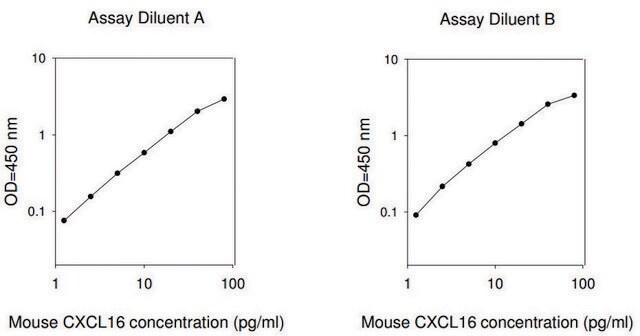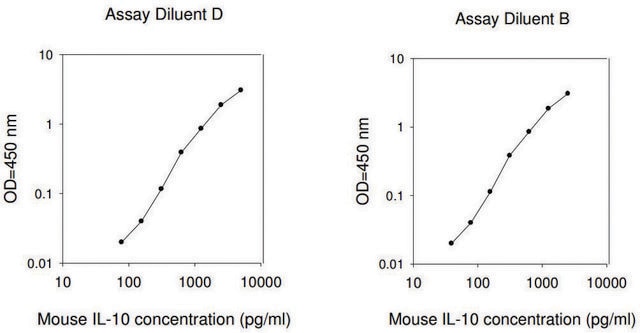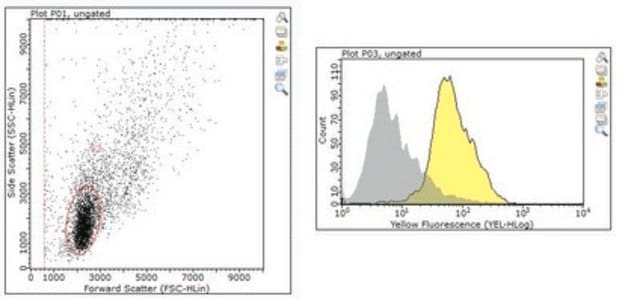RAB0849
Mouse Tnfsf10 / Tumor Necrosis Factor Ligand Superfamily Member 10 ELISA Kit
for serum, plasma and cell culture supernatants
About This Item
Empfohlene Produkte
Speziesreaktivität
mouse
Verpackung
kit of 96 wells (12 strips x 8 wells)
Methode(n)
ELISA: suitable
Aufnahme
sample type plasma
sample type serum
sample type cell culture supernatant(s)
assay range
inter-assay cv: <12%
intra-assay cv: <10%
sensitivity: 2 pg/mL
standard curve range: 2.46-600 pg/mL
Nachweisverfahren
colorimetric
Versandbedingung
wet ice
Lagertemp.
−20°C
Angaben zum Gen
mouse ... Tnfsf10(22035)
Verwandte Kategorien
Allgemeine Beschreibung
Anwendung
Please refer to the attached General ELISA KIT Procedure (sandwich, competitive & Indirect ELISA)
Biochem./physiol. Wirkung
Sonstige Hinweise
Please type the word sample in the text box provided for lot number.
Kit-Komponenten auch einzeln erhältlich
Signalwort
Warning
H-Sätze
P-Sätze
Gefahreneinstufungen
Met. Corr. 1
Lagerklassenschlüssel
8A - Combustible corrosive hazardous materials
Flammpunkt (°F)
Not applicable
Flammpunkt (°C)
Not applicable
Analysenzertifikate (COA)
Suchen Sie nach Analysenzertifikate (COA), indem Sie die Lot-/Chargennummer des Produkts eingeben. Lot- und Chargennummern sind auf dem Produktetikett hinter den Wörtern ‘Lot’ oder ‘Batch’ (Lot oder Charge) zu finden.
Besitzen Sie dieses Produkt bereits?
In der Dokumentenbibliothek finden Sie die Dokumentation zu den Produkten, die Sie kürzlich erworben haben.
Unser Team von Wissenschaftlern verfügt über Erfahrung in allen Forschungsbereichen einschließlich Life Science, Materialwissenschaften, chemischer Synthese, Chromatographie, Analytik und vielen mehr..
Setzen Sie sich mit dem technischen Dienst in Verbindung.









